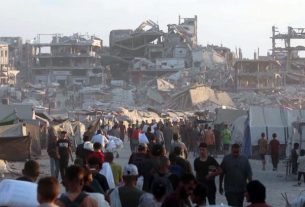Peru’s Ministry of Health has clarified that trans identities are not mental health conditions, walking back a heavily criticized presidential decree in May that portrayed trans identities as diagnosable in in the Essential Health Insurance Plan (Plan Esencial de Aseguramiento en Salud, PEAS).
The health ministry justified the decree as necessary to facilitate healthcare access for “transsexual people and people with gender identity disorders,” using outdated and pejorative language.
The decree drew fire from Peruvian human rights organizations and activists, including PROMSEX, Más Igualdad Perú (More Equality Peru), and Gahela Cari. On May 17, activists staged a protest in front of the Ministry of Health calling for the revocation of the decree. US Congressman Robert García also criticized the decree and called for the United States Department of State to do more to support Peruvian LGBT people.
Historically, medical systems around the world have categorized being transgender as a mental health condition. Health providers use two sets of guidelines to diagnose patients: the World Health Organization’s International Classification of Diseases (ICD) and the American Psychiatric Association’s Diagnostic and Statistical Manual (DSM).
The current version of the ICD, known as “ICD-11,” has reclassified “gender identity disorders” as “gender incongruence” and moved it from being listed with “mental disorders” to a chapter on sexual health. That was an important advance for transgender people, who should be able to seek health care without the stigma of being labeled as having a pathology.
The United Nations Committee on the Rights of the Child, a group of UN human rights experts, the Inter-American Commission on Human Rights, the African Commission on Human and Peoples’ Rights, and the Council of Europe’s Commissioner for Human Rights have urged governments to reform because pathologization is “one of the root causes behind the human rights violations that [LGBT people] face.”
Peru is lagging on LGBT rights. It currently does not have a procedure for trans people to change their documents to reflect their gender identity, does not allow same-sex couples to marry or enter into civil unions, and does not have civil laws prohibiting discrimination against LGBT people.
The original problematic presidential decree is still in place and should be repealed, but the health ministry’s assertion that it will not be applied is an important step toward ensuring trans people’s dignity is respected.


